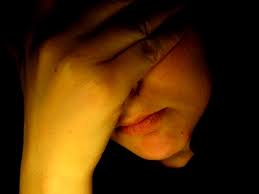Giving birth to a baby is the most significant and joyful episode in the life of a woman. It could bring a great change for a woman to be a mother. Coming of the baby is a mixed emotion in the part of a woman from excitement and happiness to fear and apprehension. But the most unexpected is it can even lead to depression. The question is why most of the women experience emotional disturbances after pregnancy, the postpartum. A lot of newly mother may experience baby blues after having childbirth which normally consists of mood swings, cry easily and fade hastily. However, there are some new mothers that experience a more serious, long-term type of depression identified as postpartum depression. In rare cases, postpartum psychosis, intense form of post partum depression may also develop after childbirth.
Â
Postpartum depression is depression that takes place shortly after giving birth. Some of the health experts name it postpartum non psychotic depression. It is not the imperfection of one’s personality rather just the difficult of giving birth. A prompt treatment of post partum depression may help to control the symptoms and may enjoy the great experience of having a baby.
What are the signs and symptoms of depression after giving birth?
The signs and symptoms of depression after giving birth may differ on the type of depression. Let us first enumerate the signs and symptoms of the baby blues, form of depression that last merely for only some days or weeks and it includes the following.
- There is the presence of mood swings.
- The person experience anxiety.
- The newly mom experience sadness.
- There is irritability.
- The newly mom easily cries.
- There is a decrease concentration.
- The newly mom experiences difficult to sleep.
Â
The following are the signs and symptoms of postpartum depression which are more severe in a long term period that in the long run may interfere with the capability in taking care of the baby and to manage other everyday jobs. Postpartum depression may last for a year or more if not treated immediately.
- There is loss of appetite.
- The newly mom experience insomnia.
- There is an extreme irritability and anger.
- There is a feeling of intense exhaustion.
- May experience low sex drive.
- Does not enjoy life anymore.
- There is a feeling of shame or failure.
- There is an extreme mood swing.
- The newly mom find difficult in building attachment with the baby.
- There is a thought of harming herself or the baby.
What are the causes of postpartum depression?
- There is a remarkable drop of estrogen and progesterone hormones in the body after giving birth that may contribute to postpartum depression. Variations in blood pressure, blood volume, metabolism and immune system that can be stressful may lead to mood swings and fatigue.
- Lack of sleep and being overwhelmed, may find difficult to manage even slight troubles. There is a feeling of apprehension about the capability of caring a newborn baby. There is a feeling of insecurities and think of losing control of owns life that may all lead to postpartum depression.
- The aspect of daily life which includes of difficult in breast feeding, financial problems, exhaustion and lack of support from partner or family.
What are the complications of postpartum depression?
Do not ignore or don’t let the symptoms of postpartum depression left being untreated because it can cause hindrances to a mother-child relationship which may lead to family problems.
- Children of the mothers wherein the postpartum depression are not treated may possibly have delay in speech development some behavioral problems like difficulties in eating and sleeping, tantrums and hyperactivity.
- Mothers who have untreated postpartum depression may develop into chronic depressive disorder.
What are the natural treatments of postpartum depression?
 1.    Healthy lifestyle
 Intake of healthy foods with exercise or any physical activity can bring great help to treat postpartum depression.
Intake of healthy foods with exercise or any physical activity can bring great help to treat postpartum depression.
2.    Realistic outlook in life.
 Do not force yourself to accomplish everything. Do what you can able to do and don’t forget to have a rest. Ask for assistance when you want to.
Do not force yourself to accomplish everything. Do what you can able to do and don’t forget to have a rest. Ask for assistance when you want to.
3.    Time for yourself.
 Always be sure to make time for yourself by visiting a friend or by spending time with your partner alone.
Always be sure to make time for yourself by visiting a friend or by spending time with your partner alone.
4.    Avoid aloneness or seclusion.
 Speak or let your partner know about how you feel. Join local groups of new mothers who have or had experienced postpartum depression.
Speak or let your partner know about how you feel. Join local groups of new mothers who have or had experienced postpartum depression.
Early detection of postpartum depression for the newly mother is good for early treatment can be immediately given to her. Keep in mind that the baby needs your love and care so you should have a healthy mind and body to take care of your baby.
